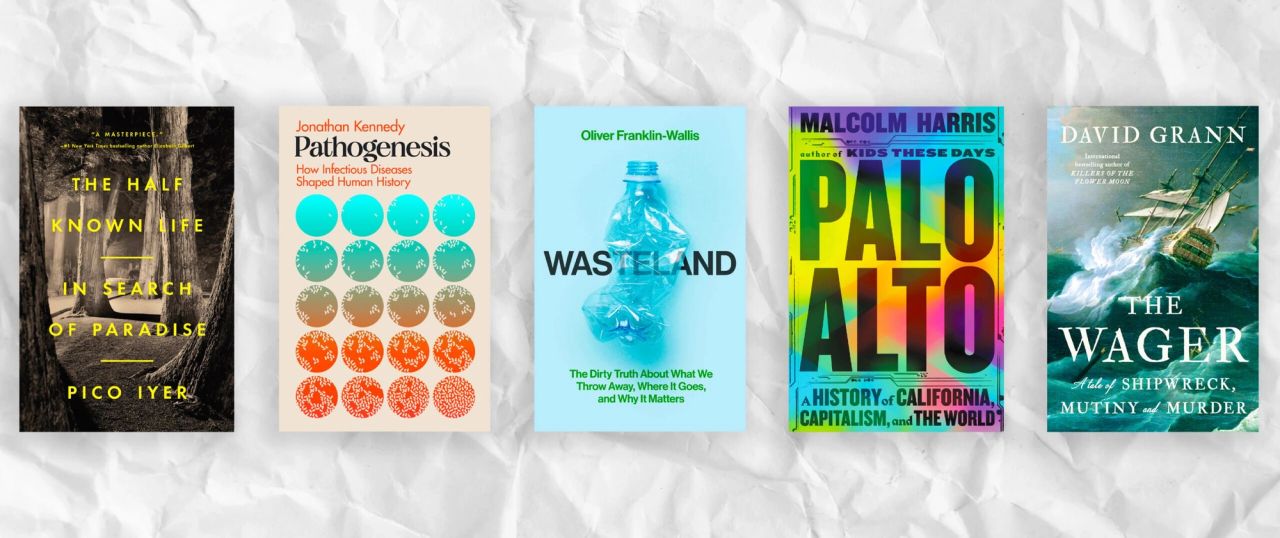Check Out the World of Truths: Exactly How Non-Fiction Books Make Checking Out an Involving Experience
Non-fiction books use a special entrance to the world of facts, changing the act of engaging with message into an engaging expedition of authentic narratives and substantial realities. By offering stories rooted in fact, these works offer visitors with a chance to connect with the details of real human experiences and the intricacies of the world around them. Whether checking out the midsts of historic enigmas or the forefront of scientific advancement, non-fiction challenges the intelligence and broadens the perspectives of understanding. Just how do these accurate stories maintain their attraction and incite a thirst for more?
The Power of Real Stories
While fiction astounds the creative imagination, real tales possess an one-of-a-kind power in their ability to resonate on a much deeper, a lot more personal level with visitors. The credibility of non-fiction stories allows individuals to attach with the experiences, challenges, and accomplishments of genuine individuals, fostering an extensive sense of compassion and understanding. This connection is unmatched, as it bridges the space in between the visitor and the subject, producing a common human experience that goes beyond the pages of a publication.
Non-fiction publications can light up varied viewpoints and cultures, using insights that might or else remain uncharted. They supply a system for voices that could be marginalized or ignored, hence promoting inclusivity and expanding the visitor's worldview. By offering accurate accounts, these stories have the potential to educate and influence, stimulating essential reasoning and motivating informed conversations on a range of topics.
Additionally, the power of real tales lies in their capability to influence adjustment. Documenting genuine occasions and individual journeys can increase awareness and drive action on social, political, or ecological issues. This transformative prospective highlights the importance of non-fiction literature as a device for advocacy and change in an increasingly complicated world.
Unveiling Historical Mysteries
Background's enigmatic allure captivates readers as they dive right into non-fiction books that unveil historical enigmas. Non-fiction authors, equipped with a wide range of documents, artefacts, and eyewitness accounts, reconstruct occasions that intrigue and mystify.
Books like "The Lost City of Z" by David Grann and "The Male That Loved China" by Simon Winchester exhibit the genre's capability to change dusty archives into fascinating tales of exploration and discovery. Grann's work unravels the mystery of British traveler Percy Fawcett's loss in the Amazon, while Winchester brightens the eccentric life of Joseph Needham, whose enthusiasm for ancient Chinese scientific research reshaped historical narratives.
Such books not just satisfy the curiosity of viewers yet also urge important thinking, testing them to examine approved historic stories. By discovering truths hidden beneath time's layers, non-fiction publications on historic enigmas improve our understanding of the world, fostering a much deeper admiration for the past's detailed tapestry.
Science Beyond the Lab

In areas like environmental science, non-fiction functions discover the interconnectedness of natural systems, describing phenomena such as environment modification and biodiversity in manner ins which are engaging and easily accessible. Authors like Rachel Carson and Elizabeth Kolbert have actually made considerable contributions, translating intricate scientific data into narratives that reverberate with the general public subconscious. Books on modern technology and technology, like those by Walter Isaacson, reveal the clinical supports of technical developments and their societal ramifications, connecting the void in between abstract concept and concrete reality.
Personal Growth With Reality

Non-fiction works, such as memoirs, self-help, and bios, offer extensive lessons in self-awareness, resilience, and empathy. They urge viewers to reflect on their very own lives, set meaningful goals, and create approaches for conquering challenges. For instance, self-help publications typically existing evidence-based mental methods for taking care of anxiety or building reliable communication skills, gearing up visitors with devices for personal advancement (Best non fiction book 2023).
Additionally, non-fiction literature can light up complicated social issues and influence advocacy. With reality-based insights, visitors are inspired to progress and grow in purposeful methods.
Experience in Real-Life Stories
Experience mesmerizes the human spirit, and real-life narratives provide a compelling look right into my link the remarkable experiences of people who have ventured beyond the borders of the regular. These non-fiction accounts draw visitors into worlds where nerve, strength, and human ingenuity are tested against the backdrop of untamed landscapes, dangerous trips, and undiscovered areas. By recording true events, these narratives give not only enjoyment yet likewise important insights into the accomplishments and difficulties dealt with by those who dared to seek the unknown.
Real-life adventure tales, such as Jon Krakauer's "Into Thin Air" or Cheryl Strayed's "Wild", work as powerful testimonies to human endurance and resolution. They repaint brilliant portraits of protagonists who confront both external barriers and internal struggles, enabling readers to vicariously experience their physical and emotional trips. These accounts offer credibility to the adventures, supplying a plain suggestion of the awesome and unpredictable nature of real-world challenges.
In addition, these stories typically highlight the profound links between humans and their environments, highlighting styles of adaptation, discovery, and survival. With their expedition of real-life experiences, viewers are motivated to assess their very own lives, promoting a deeper recognition for the spirit of expedition and the resilience of the human problem.
Conclusion
Non-fiction literary works works as an effective channel for engaging with the world via the lens of factual stories. By revealing historic secrets, it uses insights into the past, while clinical innovations are provided in a way that expands understanding past the boundaries of labs. The genre fosters individual growth with real-life experiences, supplying visitors with a sense of adventure and connection to varied cultures and point of views. Eventually, non-fiction publications celebrate human resilience and promote intellectual inquisitiveness.
Non-fiction publications provide a special entrance to the globe of truths, changing the act of involving with message into an engaging expedition of authentic narratives and tangible truths.History's enigmatic allure mesmerizes readers as they dig into non-fiction books that introduce historical secrets. From the ins and outs of ecological communities to the subtleties of human habits, science in non-fiction transcends the stereotyped picture of white layers and microscopes, providing readers a wider recognition of its applications.
By engaging with non-fiction, visitors can run into varied viewpoints and ideas, promoting emotional intelligence and important thinking abilities.
